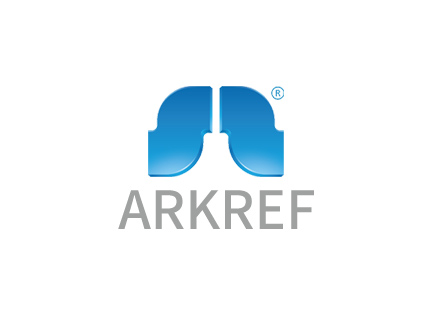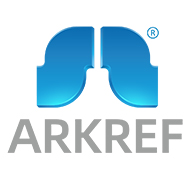The Role of Cold Rooms in Pharmaceutical Applications 2025
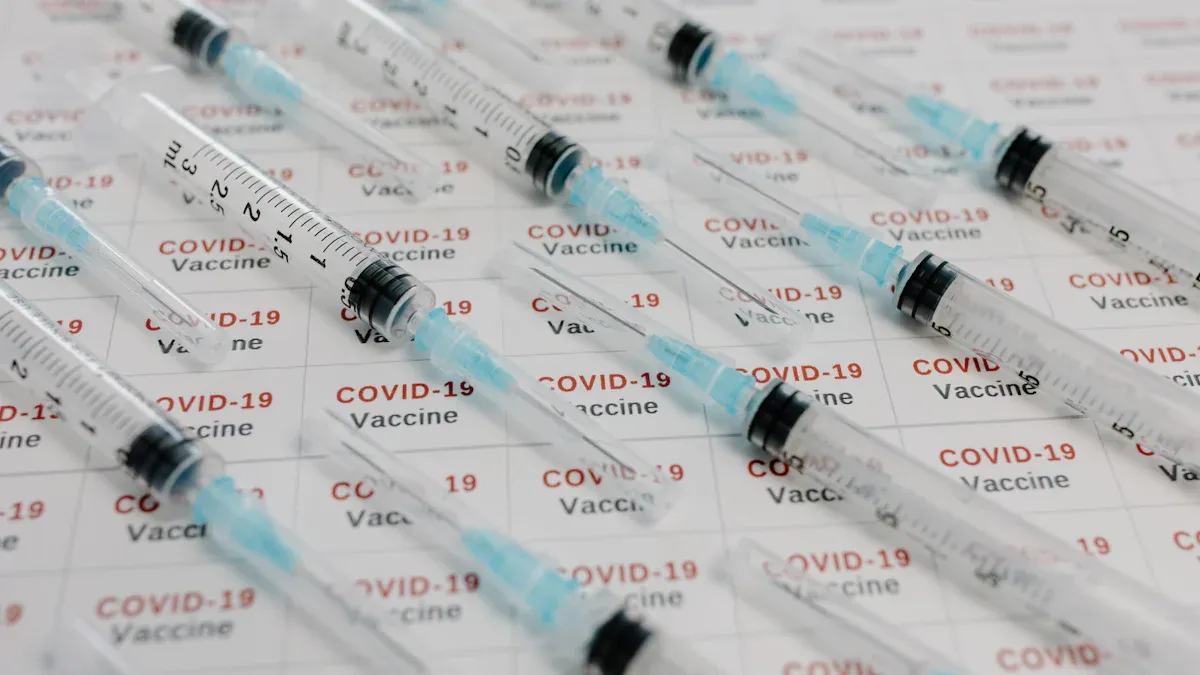
Cold rooms are important for keeping medicines safe and effective. They stop medicines from breaking down when temperatures are too high or low. As more temperature-sensitive drugs are made, cold storage is now a must. It helps medicines last longer, reduces waste, and follows safety rules.
The cold storage market is growing fast. It is expected to rise from $172.98 billion in 2025 to $479.69 billion by 2034. This shows the need for better storage that meets stricter rules. Prefabricated cold rooms are custom-made to work well and stay reliable for storing medicines.
Why Cold Rooms Matter in Medicine
Keeping Vaccines Safe
How cold rooms help vaccines
Cold rooms are key to keeping vaccines safe and strong. Vaccines need specific temperatures to work properly. For instance, mRNA vaccines must stay very cold, between -70°C and -80°C. Cold rooms provide the right conditions to stop them from spoiling. This protects public health by keeping vaccines effective. Without proper storage, vaccines can lose their power, hurting immunization efforts.
Effects of temperature changes on medicines
Temperature changes can ruin medicines and vaccines. Important ingredients break down if stored wrong. This makes them less effective and unsafe for patients. Cold rooms solve this by keeping temperatures steady and using monitoring systems. These systems ensure medicines stay safe and useful while stored.
Staying Safe and Following Rules
Stopping contamination and spoilage
Cold rooms are built to stop contamination and spoilage of medicines. They use special air systems to keep conditions even and clean. Eco-friendly materials and cleanroom designs add extra safety. By preventing spoilage, they save money and protect patients.
Following global rules
Pharmaceutical cold rooms must meet strict global rules like GMP. They include features like real-time tracking and backup power to follow these rules. These systems make audits and inspections easier. Meeting these standards keeps medicines safe and operations smooth.
Helping Science and Medicine
Storing samples for research
Cold rooms help research by storing clinical trial samples at the right temperatures. These samples need to stay between -20°C and -80°C to remain usable. Reliable storage keeps research data accurate and helpful for new treatments.
Supporting personalized medicine
Biobanks use cold rooms to store samples like tissues and DNA. These need exact temperature and humidity control to last. Advanced systems in cold rooms keep these samples safe for a long time. This helps create new personalized treatments and advances in science.
Features of Pharmaceutical Cold Rooms
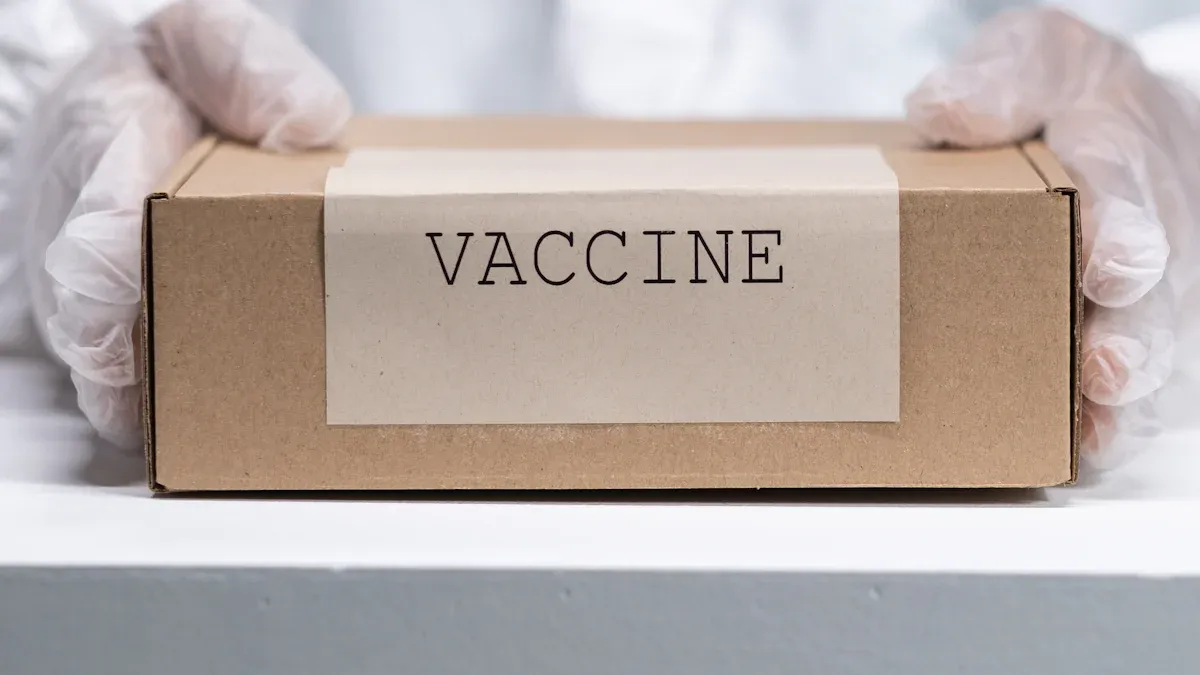
Precise Temperature Control
Customizable ranges for specific pharmaceutical needs
Pharmaceutical cold rooms are made to store different products safely. You can set the temperature to match what each product needs. Some vaccines need very cold storage, while others need less cooling. Temperature checks find problem spots and help place sensors in the best locations. Rules from groups like the FDA and EMA require this accuracy to keep medicines safe and follow laws.
Aspect | Description |
|---|---|
Importance of Temperature | Keeping the right temperature protects medicines and patients. |
Temperature Mapping | Finds problem areas and helps place sensors for better control. |
Regulatory Compliance | Needed by FDA and EMA to prove storage meets safety rules. |
Uniformity through advanced air circulation
Even temperatures in the cold room are very important. Special air systems spread cold air evenly to stop hot or cold spots. This keeps all products, no matter where they are stored, at the right temperature. Even cooling stops products from going bad and meets safety standards.
Integrated Monitoring Systems
Real-time tracking and alerts
Monitoring systems check temperatures all the time and send alerts. They use smart technology to spot problems fast so you can fix them. For example, if the room gets too warm, the system warns you to save the products. This quick action keeps items safe and reduces waste.
Ensuring traceability and documentation
Tracking is very important in medicine storage. Monitoring systems often use blockchain to make unchangeable records of storage conditions. This makes inspections easier and follows global rules. These systems also give useful data to predict problems and keep products safe.
Energy Efficiency and Sustainability
Use of eco-friendly materials and refrigerants
Modern cold rooms focus on being good for the environment. Green refrigerants lower energy use and help the planet. These materials also make cooling systems last longer. Choosing these options saves money and supports eco-friendly goals.
Advanced insulation and cooling technologies
Energy-saving designs cut costs and help the environment. Good insulation stops energy loss, and smart compressors use only the power needed. LED lights also use less energy. These features make cold rooms cheaper to run and better for the planet, helping labs and storage centers in the long run.
Modular and Prefabricated Designs
Easy to Expand for More Storage
Modular cold rooms are great for growing storage needs. You can add more modules as your facility grows. This way, you don’t disturb the current setup. It helps meet the demand for items like vaccines and biologics.
Real-life examples show how modular designs help:
A company in India used modular cold rooms for vaccines. This cut costs by 30% and improved inventory tracking.
A research lab added prefabricated modules in weeks, avoiding long construction delays.
These examples show modular systems save time, money, and keep products safe.
Custom Solutions for Different Needs
Prefabricated cold rooms can be designed for specific uses. They work for ultra-cold mRNA vaccines or controlled humidity for biobanks.
You can pick sizes, temperature ranges, and layouts to fit your needs. For example, some units have sections for different temperatures. This lets you store various products in one system. Advanced insulation and cooling keep everything working well.
Prefabricated units are easy to install since they come pre-made. They set up fast, reducing downtime. This makes them perfect for places needing quick or frequent changes.
Choosing modular and prefabricated designs gives you a flexible, affordable, and reliable storage solution.
Technological Advancements in Cold Rooms for 2025
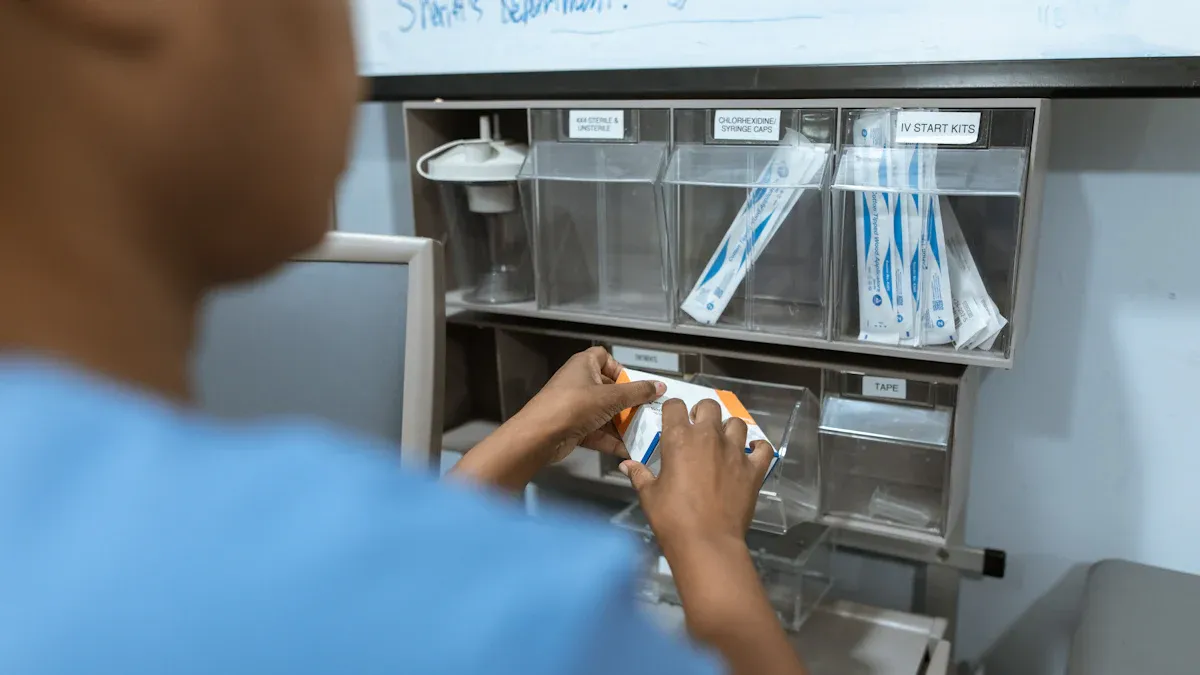
Automation and Smart Systems
Using PLC/SCADA for remote control
Automation has made cold room management easier and better. PLC (Programmable Logic Controller) and SCADA (Supervisory Control and Data Acquisition) systems let you control cold rooms from far away. These systems keep temperatures steady, which is very important for medicines. Watching in real-time helps fix problems quickly, saving money and lowering risks.
Feature | Benefit |
|---|---|
Accurate Temperature Control | Keeps medicines safe and effective |
Real-Time Monitoring | Fixes problems fast |
Saves Energy | Cuts down on costs |
Meets Rules | Follows industry safety standards |
Using AI and IoT for better maintenance
AI and IoT make cold room maintenance smarter. Sensors collect data to find problems before they happen. IoT devices track and analyze storage conditions in real-time. This helps manage inventory better and avoid breakdowns. Predictive maintenance keeps systems running and medicines safe.
Metric | Description |
|---|---|
Automatic Data Logging | Tracks temperature history for safety and rules. |
Remote Monitoring | Warns about temperature changes for quick fixes. |
AI and IoT Tools | Predicts issues and improves inventory management. |
Backup Cooling Systems
Extra safety for important storage
Backup cooling systems add extra protection for medicine storage. If one system breaks, the backup keeps cooling going. This is very important for vaccines and other sensitive products.
Backup cooling systems ensure constant cooling for medicines.
Lowering risks of breakdowns
Backup systems stop big failures from happening. If one unit stops working, the backup starts right away. This keeps products safe and meets strict storage rules.
Eco-Friendly Innovations
Modular designs to cut waste
Modular cold rooms help the environment by reducing waste. You can add more space only when needed, saving energy. Prefabricated units also lower construction waste and mess at the site.
Modular cold rooms save energy by using only needed space.
Prefabricated designs reduce building waste and site damage.
Better insulation in modular systems stops energy loss.
Cleanroom technology for safer storage
Cleanroom features in cold rooms keep the space sterile. This lowers the chance of contamination, which is great for sensitive medicines. Combining cleanroom tech with modular designs creates a safe and eco-friendly storage option.
Applications of Cold Rooms in Pharmaceuticals
Vaccine Storage Cold Rooms
Ultra-low temperature needs for mRNA vaccines
Vaccines, like mRNA ones, need very cold storage to work. Vaccine cold rooms keep temperatures between -70°C and -80°C. This stops these sensitive products from breaking down. For example, biologics like mRNA vaccines need steady cold to stay effective. The table below shows the best conditions for different medicines:
Product Type | Best Temperature | Humidity Needs | Special Notes |
|---|---|---|---|
Vaccines | 2°C to 8°C | 50%-60% | Steady cold keeps vaccines working. |
Blood and Plasma | -30°C to -40°C | N/A | Very cold storage protects proteins. |
Biologics | 2°C to 8°C | 50%-60% | Controlled cold stops damage to sensitive items. |
Cold chain for worldwide delivery
Cold rooms are key for shipping vaccines safely worldwide. They keep vaccines effective during transport. More vaccines and biologics mean better cold storage is needed. Governments also require reliable systems. Important facts include:
The pharmaceutical market may grow by 20.1% yearly soon.
The cold chain market could grow 3.7% yearly until 2035.
Biobanking and Research
Long-term storage of biological samples
Biobanks use cold rooms to store samples like tissues and DNA. These rooms keep temperatures below -130°C to stop chemical changes. Automated systems keep conditions steady, avoiding risks during handling.
Temperature Range | Effect on Sample Safety |
|---|---|
Below -130°C | Stops all chemical activity, protecting samples. |
Below -73°C | Stops protein movement, keeping samples safe. |
-80°C to < -130°C | Safety depends on the type of sample stored. |
Helping personalized medicine grow
Biobanks help create treatments tailored to individuals. Cold rooms keep samples safe for research. They control temperature and humidity, helping scientists make new healthcare advances.
Active Pharmaceutical Ingredient (API) Storage
Keeping APIs stable and safe
Cold rooms protect APIs from breaking down due to heat changes. APIs stay stable at 2°C to 8°C or even colder for freezing. The table below shows common storage conditions:
Storage Type | Temperature (°C) | Humidity (RH) | Time Period |
|---|---|---|---|
Long-term | 25 ± 2 | 60 ± 5 | 24 to 36 months |
Cold storage | 2 to 8 | N/A | N/A |
Freeze storage | -20 | N/A | N/A |
Ultra-low storage | -80 | N/A | N/A |
Following storage rules
Cold rooms help meet global rules for storing APIs. They have features like live monitoring and backup systems. These tools make inspections easier and keep products safe.
Benefits of Advanced Cold Rooms
Keeping Products Safe
Stopping spoilage of sensitive items
Cold rooms help keep medicines safe and effective. They control temperatures to stop ingredients from breaking down. Monitoring systems send alerts if temperatures change, so you can fix it fast. Stainless steel interiors make cleaning easy, keeping products safe from germs.
Feature | Benefit | Impact on Contamination Risk |
|---|---|---|
Temperature Control | Keeps medicines stable and effective | Lowers spoilage and contamination risks |
Monitoring Systems | Alerts for temperature changes | Quick action prevents contamination |
Hygienic Interiors | Easy to clean and sterilize | Reduces contamination chances |
Lowering contamination risks
Modern cold rooms lower contamination risks with clean designs and monitoring. Backup power keeps cooling steady during outages, avoiding unsafe temperature changes. Automatic data records also help meet safety rules, reducing contamination problems.
Saving Money and Growing Storage
Cutting costs with energy-saving systems
Energy-efficient cold rooms save money and keep items safe. Good insulation and smart compressors use less energy. These features lower bills and make cooling systems last longer, cutting repair costs.
Energy-saving systems lower costs.
Good insulation stops energy waste.
Smart compressors use just the right amount of power.
Flexible storage with modular designs
Modular cold rooms grow with your needs. You can add more space without stopping work. Prefabricated designs are quick to set up, perfect for busy labs. These systems help meet growing storage demands.
Following Rules
Meeting strict storage rules
Cold rooms follow global rules like GMP and WHO. They control temperatures and monitor conditions to meet these standards. This keeps medicines safe and follows industry laws.
Compliance Aspect | Description |
|---|---|
Following Rules | Keeps temperatures steady and meets handling requirements. |
Records and Fixes | Tracks problems and fixes them quickly. |
Regular Checks | Updates systems to meet new rules. |
Making inspections easier
Monitoring systems and data logs make inspections simple. They show clear records of storage conditions to prove safety. By following rules, you can focus on delivering quality medicines.
Cold rooms are crucial for keeping medicines safe and effective. They stop important ingredients from breaking down, protecting patients. New cold storage systems meet global rules like GMP and make medicines last longer. The cold storage market is growing fast due to more vaccines and biologics.
Prefabricated cold rooms are flexible and fit different needs. They store medicines safely and follow strict rules. Using advanced cold rooms helps you stay updated and ensures medicine safety and quality.
See Also
The Importance of Cold Rooms for Product Freshness
Revolutionizing Storage Solutions with Cold Room Technology
Comparing Container Cold Rooms and Conventional Storage Methods
